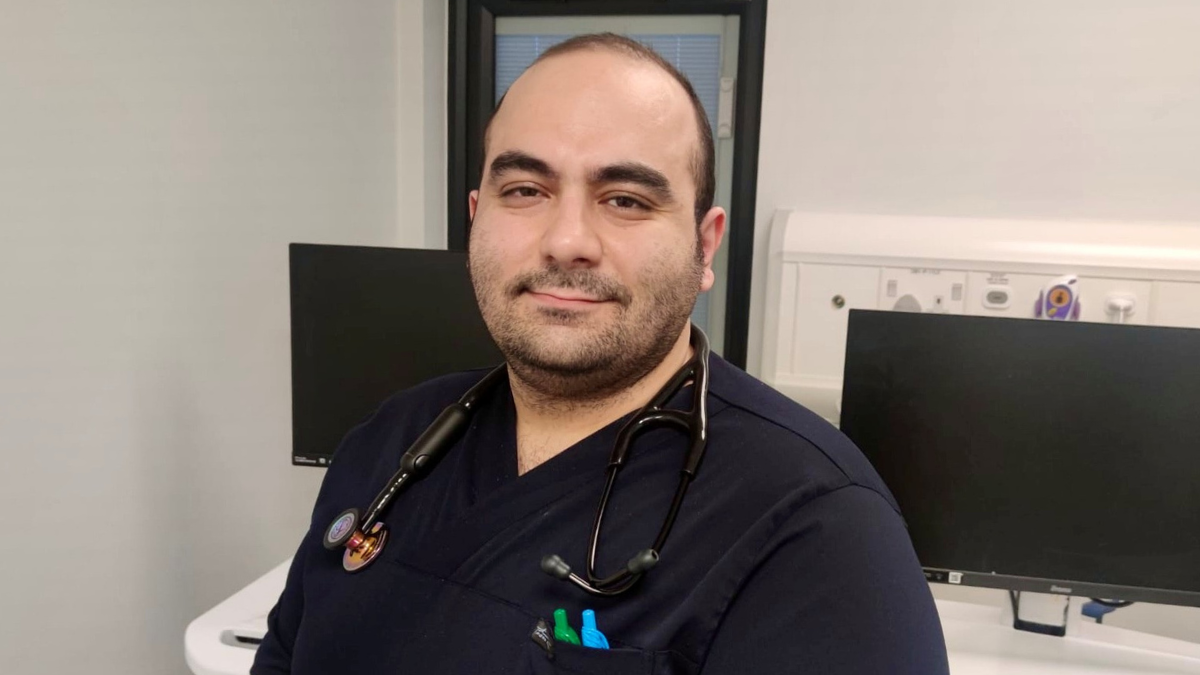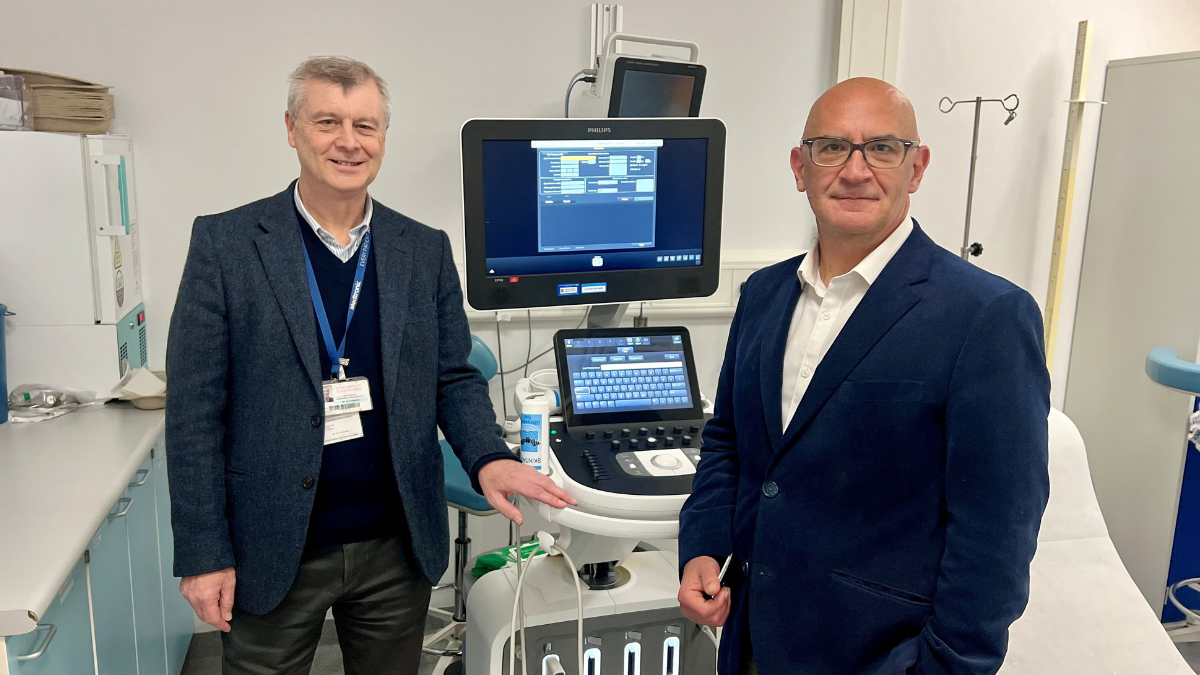Nurse's journey with prostate cancer on groundbreaking trial
Published on 18/06/2025

As Queen Elizabeth Hospital Birmingham (QEHB) celebrates its 15-year anniversary, one patient’s story highlights the groundbreaking impact of the STAMPEDE trial - a major prostate cancer study that QEHB has been a part of since 2005.
Menassie Asfaw, 65, a retired nurse from Birmingham who formerly worked at QEHB, was first diagnosed with advanced prostate cancer in September 2017.
At the time, he didn’t recognise his symptoms as signs of cancer, which included excessive urination and diffused lower back pains. His diagnosis came after he developed numbness and weakness in his fingers, by which point the cancer had already spread to his spine, ribs, lymph nodes, and pelvis, requiring urgent treatment.
He then joined the STAMPEDE trial, one of the largest ever prostate cancer clinical trials to be carried out in the world.
The trial has looked at the best way to treat people with newly diagnosed, advanced prostate cancer, by evaluating the effectiveness of combining standard hormone therapy with various additional treatments.
Since its launch in 2005, STAMPEDE has involved 165 researchers and over 5,000 NHS staff across 126 hospitals in the UK and Switzerland, recruiting nearly 12,000 patients.
Menassie is one of approx. 250 patients recruited at QEHB as part of the trial. He was randomly assigned to a group investigating whether metformin (a drug used to treat type 2 diabetes) can improve treatment outcomes when combined with hormone therapy (standard of care).
Since joining the trial, Menassie has undergone two lines of chemotherapy, radiation, and a combination of hormone therapy and metformin to control the progression of his cancer. Now, eight years later, his condition remains stable, and he credits the trial for providing him with the opportunity to live far longer than expected.
He said: “It’s difficult to quantify, but if I had been diagnosed 20 or 30 years ago, I might not have been as well as I am now, or even worse, I may not potentially be here. I can’t say exactly what the trial has done for me, but I know I’ve done better than many others in similar circumstances.”
Menassie’s wife, Gaynor, a retired oncology nurse who he met during his training, added: “From my perspective, when Menassie was diagnosed, I thought I’d probably lose him within three years. It’s still a surprise to me, given the state of his disease at the time, that he’s still here. But he is, and we’re just loving life, going out and doing what we can, when we can.”
Menassie and his wife now spend much of their time enjoying activities they love, including attending music festivals, gigs, and pubs to discover new bands from the emerging rock scene, as well as the theatre.
He visits QEHB every three months to receive treatment as part of the STAMPEDE trial. Reflecting on his experience, he said: "I, and we, can honestly say that since the day I was taken the arm of QEHB, I really don’t have anything bad to say about the care I’ve been given. It’s a fantastic service and they are always there for you. Also, it would be remiss of me not to mention the love and support from family and friends that contribute towards my health and wellbeing.”
After nearly two decades of research, the STAMPEDE clinical trial closed to recruitment on 31 March 2023. Its initial findings have significantly influenced the treatment of advanced prostate cancer, benefiting countless men across the globe.
The chemotherapy drug docetaxel is now routinely used as part of standard care alongside hormone therapy treatment, and the hormone therapy abiraterone is now more widely available.
In addition, STAMPEDE’s finding that radiotherapy improved survival for men whose cancer had spread to only a few places around the body (four or less) also informed NHS England’s decision to recommend radiotherapy for this group of men in 2020.
Dr Anjali Zarkar, Consultant Clinical Oncologist at QEHB, who has been involved with the STAMPEDE trial over the last 20 years, said: “This trial has fundamentally changed the way we treat prostate cancer. Due to the results of this trial, average survival for men with advanced prostate cancer has increased from 3-4 years to 7-8 years.”
Matt Metcalfe, Hospital Executive Director at QEHB, said: “As we celebrate 15 years of care and innovation at QEHB, Menassie’s story is a powerful reminder of the impact research can have. This work has not only advanced global understanding of prostate cancer treatment but also brought real hope to patients and families here in Birmingham and beyond. We’re incredibly proud to be part of this research that is changing lives and shaping the future of treatment.”
Although recruitment has closed, current participants will continue treatment and assessments for several years, and further findings will be published in due course.
The success of the STAMPEDE trial has paved the way for the STAMPEDE2 trial, a second clinical trial in patients whose cancer has spread beyond the prostate to other parts of the body (metastatic prostate cancer).
STAMPEDE2, planned to open to recruitment at UHB later this year will continue delivering impactful research and improvements in care for the prostate cancer community.


